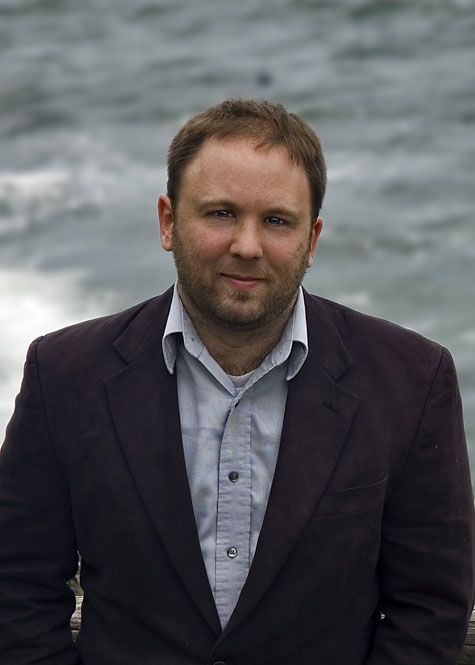 DIFFERENCES It’s not ‘classical’ — it’s ‘art’ music. Photo by AUDRA HATCH |
Joshua Newton wants you to know he doesn't write classical music.
"That term has boogie men attached to it," he says.
Newton says that he writes art music, and he includes System of a Down, Metallica, and Stravinsky all in the same genre.
After playing bass and composing for a thrash metal band in the '90s, Newton changed his focus, went to USM, and studied classical music. He became interested in new music and discovered a propensity for composing. Since then, he has been working a day job as a computer programmer, raising his family, going to school, and composing in the wee hours of the morning.
"My wife calls it 'composer brain,'" he says, describing the far-away look he gets just before he rushes to the computer to write out his ideas.
Newton says that while he thinks about his compositions for weeks before actually composing anything, he writes fast. And he writes directly to a computer. This has been a bone of contention for the young composer.
"The purist classical movement says you can only compose one way," he says. "I've been told I'm not a real composer because I don't use a piano."
But Newton rejects that notion, believing that the medium a composer uses doesn't matter as long as the audience connects to the music.
"My approach to classical is the same as it is to rock. Be topical. Speak to an audience. Good music will attract audiences," he says.
This was his thought process when putting together a selection of his compositions to be performed for his student recital October 9 at Corthell Hall on USM's Gorham campus. The location is important. Newton composed one of his works with Corthell Hall in mind.
"All the players will be spread throughout the hall," he says. "Corthell has been a part of my life for so long."
For a USM music major, Corthell Hall is not only where nearly every school-related performance takes place, but also where the music students convene every Friday for a performance-based recital class. The hall begins to take on a life of its own, and it was this concept Newton had in mind when creating this piece.
He describes the piece as avant-garde and atmospheric. The work will be performed on a darkened stage, which Newton hopes will be disarming for his audience. (One work, setting three erotic poems to music, he thought might have been too disarming for his mother, who will be in the audience, so that won't be performed.)
The second half of Newton's program will be one work, a piano concerto, which he says took about a year to write -- compared to the other works on his program, each of which he wrote in a matter of days.
"I wanted to go out with something big, grandiose," he says.
Newton even hired a small string orchestra to accompany his pianist.
For Newton, this is more than the culmination of his studies at USM. It is a dedication to his composition teacher and mentor, Joseph Packales, who died last year, it is his chance to hear his works performed by talented, hand-picked musicians, to offer his compositions to the world, and to explore the future of classical music in his own way.